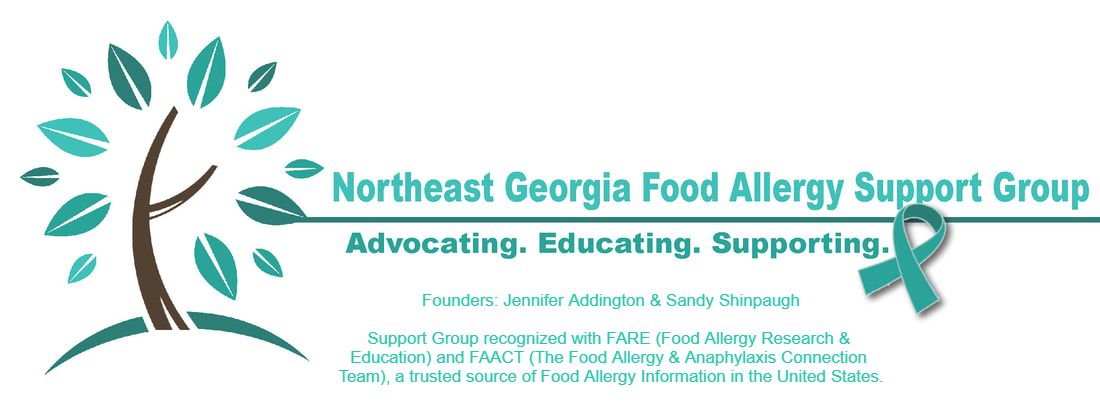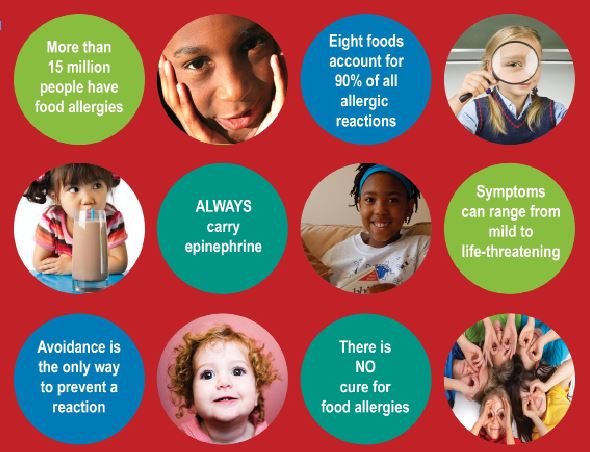Welcome to Northeast Georgia Food Allergy Support Group Website! We serve the following counties: Fannin, Gilmer & Union Counties.
Do you know the Six Must-Know Medical Facts? If not, read below to find out!
Food allergy occurs when the immune system mistakenly attacks a food protein. Ingestion of the offending food may trigger the sudden release of chemicals, including histamine, resulting in symptoms of an allergic reaction. The symptoms may be mild (rashes, hives, itching, swelling, etc.) or severe (trouble breathing, wheezing, loss of consciousness, etc.). A food allergy can be potentially fatal. Scientists estimate that as many as 15 million Americans suffer from food allergies.
- A food allergy is an overreaction of the immune system in response to a food protein.
- Even a minuscule amount of food can trigger this overreaction and cause symptoms ranging from mild nausea or itching to anaphylaxis (a serious allergic reaction that is rapid in onset and may cause death).
- There is no cure for food allergies. Strict avoidance of the food is the only way to prevent a reaction.
- An allergic reaction can occur up to two hours (and very rarely up to four hours) after ingestion.
- The severity and progression of an allergic reaction is unpredictable.
- Anaphylactic reactions are treated by prompt administration of epinephrine. Time is of the essence and may mean the difference between life and death. Transport to an emergency room must follow. Repeat administration of epinephrine may be required if symptoms do not improve within 10 minutes.
- A food allergy is an overreaction of the immune system in response to a food protein.
- Even a minuscule amount of food can trigger this overreaction and cause symptoms ranging from mild nausea or itching to anaphylaxis (a serious allergic reaction that is rapid in onset and may cause death).
- There is no cure for food allergies. Strict avoidance of the food is the only way to prevent a reaction.
- An allergic reaction can occur up to two hours (and very rarely up to four hours) after ingestion.
- The severity and progression of an allergic reaction is unpredictable.
- Anaphylactic reactions are treated by prompt administration of epinephrine. Time is of the essence and may mean the difference between life and death. Transport to an emergency room must follow. Repeat administration of epinephrine may be required if symptoms do not improve within 10 minutes.
Our Motivational quote:

"To determine how successful your actions might be, consider how your efforts will serve to improve the lives of others." -P. Cannon Rasmussen

Northeast GA Food Allergy Support Group is a non profit, volunteer support group for individuals and families living with food allergies in nearby communities. The site is NOT intended to be a substitute for professional medical advice, diagnosis, or treatment. Always consult with an allergist or a family physician for individual diagnosis or treatment. Always check manufacturer's ingredient listings when purchasing product. Northeast GA Food Allergy Support Group and its contributors to this site will not be held responsible for any actions taken based on, or as a result of the reader’s interpretation contained within.

